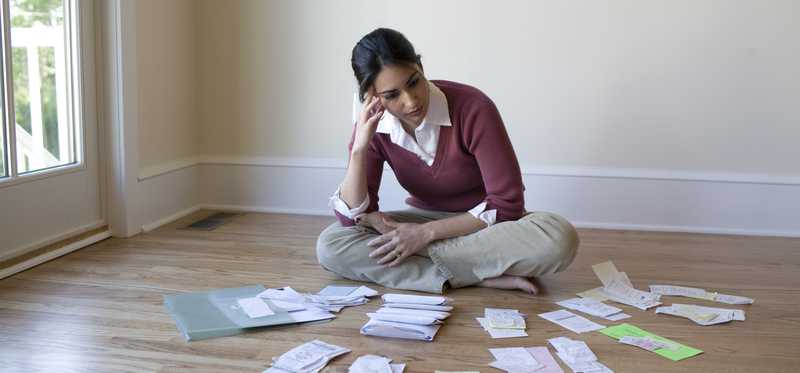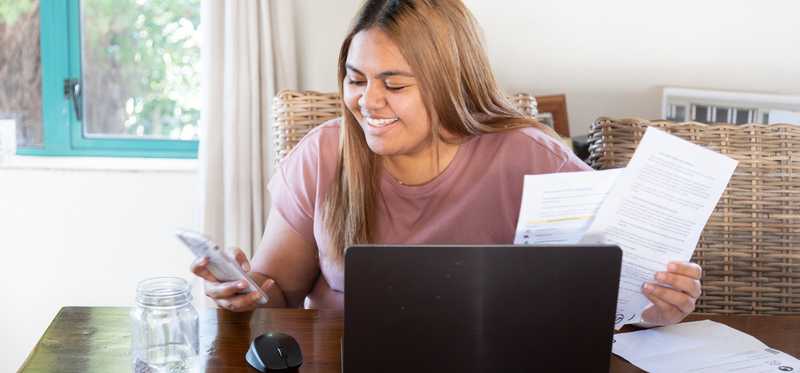15 Reasons You Need an Emergency Fund

15 Reasons You Need an Emergency Fund
Setting money aside for a rainy day
We live in uncertain times, but that doesn’t mean you can’t prepare for life’s uncertainties. As you progress on your journey to achieving financial freedom, one very important aspect is to ensure that you have a strong reserve of savings to fall back on. And part of your overall savings plan should be to build and maintain a robust emergency fund.
If you’ve been contemplating whether it might be the right time to start shoring up your emergency fund but haven’t quite gotten there yet, here are 15 reasons why now is exactly the right time to take this crucial step toward greater financial security.
5 Winning Stocks Under $49
We hear it over and over from investors, “I wish I had bought Amazon or Netflix when they were first recommended by the Motley Fool. I’d be sitting on a gold mine!” And it’s true. And while Amazon and Netflix have had a good run, we think these 5 other stocks are screaming buys. And you can buy them now for less than $49 a share! Simply click here to learn how to get your copy of “5 Growth Stocks Under $49” for FREE for a limited time only.
Previous
Next

1. You can more effectively plan for the future
If unforeseen circumstances occur that bring surprise expenses into the picture, having an emergency fund can help you cover these costs without disrupting your broader savings plan and financial goals.
ALSO READ: 4 Simple Tips to Ensure You Have an Emergency Fund Within a Year
Previous
Next

2. You don't want to have to tap into your investments if an emergency happens
While your investing journey and emergency fund may not seem related, the lack of the latter could very much impact the health of your investment portfolio in the event of a crisis.
For example, if you are faced with a situation such as an unexpected illness, injury, or a job loss, and you don’t have any sort of a nest egg set aside to cover these types of emergencies, you might have no other choice than to cash out some of your investments.
This could not only result in you forfeiting investments primed for long-term growth, but it’s possible that you might even lose money by being forced to liquidate some of your stocks at an inopportune moment.
Previous
Next

3. Even if a personal emergency doesn't happen, unforeseen expenses can
No matter how much you plan, life happens. You may not find yourself faced with a personal crisis in the near future, but you could still encounter unexpected expenses that crop up from time to time.
It’s important to ensure that your overall savings plan includes a solid emergency fund that you can fall back on when life happens and you find yourself slapped with an unanticipated expense, such as a car or home repair.
Previous
Next

4. An emergency fund can help you avoid the pitfalls of carrying excessive debt
Going into debt is a real possibility if you don’t have an emergency fund to rely on for life’s unanticipated bumps in the road. And if you’re already carrying a substantial amount of debt, the absence of an emergency fund is likely to tack on more, which can impact everything from your ability to invest in stocks to your success in meeting your overall long-term financial goals.
ALSO READ: Here's How Big Dave Ramsey Says Your Emergency Fund Should Be
Previous
Next

5. If you're working to reduce debt, an emergency fund can help you keep on track
If you’ve been holding off starting to build your emergency fund because you’re currently paying off debt, it’s worth noting that the two don’t have to be mutually exclusive.
If you currently have a lot of high-interest debt, these are the types of liabilities you should prioritize paying down first and foremost. It’s also important to make sure that you pay your debts on time and try to pay more than the minimum balance due each month to the parties owed.
Even putting a few hundred dollars toward your emergency fund each month can make a big difference in the long run. It might be tempting to wait to build your emergency fund until all your debt is paid off. However, if you don’t have an emergency fund and an unforeseen expense arises, you may not have any other option but to accumulate more debt or to pull from your investments, neither of which is an ideal solution.
5 Winning Stocks Under $49
We hear it over and over from investors, “I wish I had bought Amazon or Netflix when they were first recommended by the Motley Fool. I’d be sitting on a gold mine!” And it’s true. And while Amazon and Netflix have had a good run, we think these 5 other stocks are screaming buys. And you can buy them now for less than $49 a share! Simply click here to learn how to get your copy of “5 Growth Stocks Under $49” for FREE for a limited time only.
Previous
Next

6. An emergency fund can help you stay afloat while you change jobs
If you’re looking to make a job change in the near future, it’s vital to ensure that you have a sturdy emergency fund well in place. In particular, if there’s a transition period between jobs, that emergency fund can help you rest easy knowing that you have the money to cover your living expenses and other regular monthly costs while you wait for your first paycheck from your new employer.
Previous
Next

7. An emergency fund will help ensure you always have some cash easily available
Just as a thorough savings and investment strategy is key to building a stronger, more secure financial future, so is your emergency fund. It’s better to have some cash at the ready and not need it than to find yourself taking on unnecessary debt if an emergency happens.
Previous
Next

8. An emergency fund could help you pay for any sudden repairs
Whether it’s a busted pipe in your home or your car needs new tires, unexpected repairs seem to pop up at the most inopportune times. If your current discretionary budget is stretched thin, having a well-stocked emergency fund can help ensure that these types of expenses don’t cause you a tremendous headache trying to figure out how to pay for them.
Previous
Next

9. An emergency fund can help you survive financially if your job situation changes
No one likes to think about job loss. But if your current employment situation lends itself to minimal job security, or you have an income that changes month to month, it’s incredibly important to start building your emergency fund if you haven’t already.
Even a small contribution to the stockpile every month can help you accumulate a healthy emergency fund over time that gives you a safety blanket in the event of a potential job loss or change.
Previous
Next

10. An emergency fund could help cover the costs of an unexpected medical need
Unfortunately, when medical expenses arise, they often do so out of the blue. Even if you have an excellent health insurance plan, a robust savings stash can help you prepare for the out-of-pocket medical expenses you will almost certainly incur and prevent you from going into debt or having to turn to your investments for cash.
5 Winning Stocks Under $49
We hear it over and over from investors, “I wish I had bought Amazon or Netflix when they were first recommended by the Motley Fool. I’d be sitting on a gold mine!” And it’s true. And while Amazon and Netflix have had a good run, we think these 5 other stocks are screaming buys. And you can buy them now for less than $49 a share! Simply click here to learn how to get your copy of “5 Growth Stocks Under $49” for FREE for a limited time only.
Previous
Next

11. A well-stocked emergency fund can help put your mind at ease
This is one of the most basic reasons to keep and maintain an emergency fund. Knowing that you have that money to fall back on will give you one less thing to worry about as you navigate the daily stresses of life and put your mind at ease if/when a sudden expense hits.
ALSO READ: I Took an Emergency Fund Withdrawal for a Non-Emergency. Here's Why
Previous
Next

12. You can build an emergency fund and still invest in the stock market
It’s completely possible to both save and invest, although it’s important to note that you should always keep your emergency fund separate from your investing capital.
If your budget allows you to build your emergency fund and investment portfolio at the same time, consider setting aside a specific dollar amount contribution toward both each month so you can consistently expand your savings stash and basket of holdings.
Previous
Next

13. An emergency fund means there's always extra money there if you need it
An emergency fund isn’t intended for everyday expenses or to fund your stock buying endeavors. You should only draw from your emergency fund if you absolutely need to (such as for an unexpected repair, a medical need, to pay living expenses in the event of job loss, etc.), but there’s a comfort that comes from knowing you have a financial cushion should you need it.
Previous
Next

14. Not having an emergency fund could put you in serious financial trouble
Emergencies are difficult to plan for, and can take on many different forms. Even if you rarely tap into your emergency fund, which is always the goal, you’ll likely sleep better knowing that you’re ready to handle whatever financial curveballs life throws your way.
ALSO READ: These Horror Stories From Homeowners Show the True Importance of an Emergency Fund
Previous
Next

15. An adequate emergency fund can help you work toward your financial goals
Whether it’s budgeting for college, saving for retirement, building a stronger investment portfolio, or eliminating debt, having a solid emergency fund can help ensure that you stay focused in pursuit of the long-term financial objectives you’ve set for yourself.
5 Winning Stocks Under $49
We hear it over and over from investors, “I wish I had bought Amazon or Netflix when they were first recommended by the Motley Fool. I’d be sitting on a gold mine!” And it’s true. And while Amazon and Netflix have had a good run, we think these 5 other stocks are screaming buys. And you can buy them now for less than $49 a share! Simply click here to learn how to get your copy of “5 Growth Stocks Under $49” for FREE for a limited time only.
Previous
Next

How big should your emergency fund be?
The size of your emergency fund will depend on a range of factors, including your average monthly expenses and overall budget. Generally speaking, your emergency fund should be enough to cover around three to six months of living expenses should the need present itself.
And even if that rainy day never comes, there’s tremendous peace of mind that comes with knowing you’ve got your bases covered if an unexpected cost arises.
The Motley Fool has a disclosure policy.
Previous
Next
Invest Smarter with The Motley Fool
Join Over Half a Million Premium Members Receiving…
- New Stock Picks Each Month
- Detailed Analysis of Companies
- Model Portfolios
- Live Streaming During Market Hours
- And Much More
READ MORE
HOW THE MOTLEY FOOL CAN HELP YOU
-
Premium Investing Guidance
Market beating stocks from our award-winning service
-
The Daily Upside Newsletter
Investment news and high-quality insights delivered straight to your inbox
-
Get Started Investing
You can do it. Successful investing in just a few steps
-
Win at Retirement
Secrets and strategies for the post-work life you want.
-
Find a Broker
Find the right brokerage account for you.
-
Listen to our Podcasts
Hear our experts take on stocks, the market, and how to invest.
Premium Investing Services
Invest better with The Motley Fool. Get stock recommendations, portfolio guidance, and more from The Motley Fool's premium services.